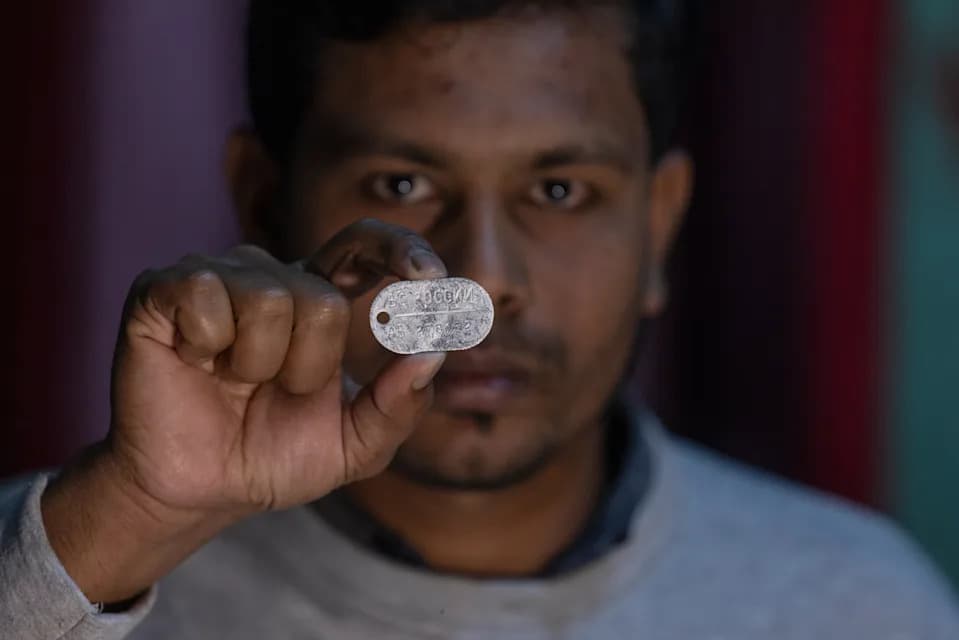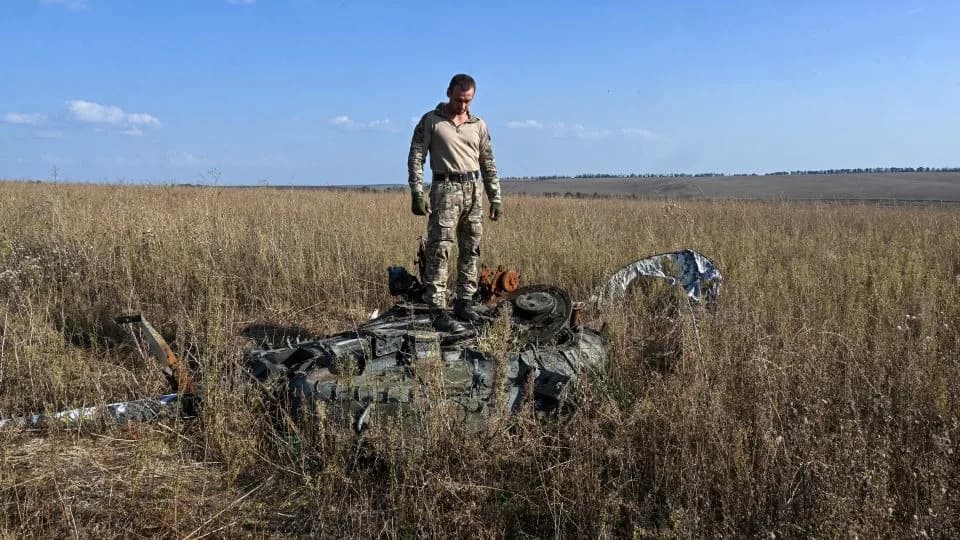Ukrainian sources say videos and research shared with investigators indicate Russia is deploying mentally disabled and medically unfit men to frontline combat. Several named cases — including men in their early 20s and a 27-year-old declared fit for service despite lifelong disabilities — are cited as evidence. Analysts say Moscow's reliance on vulnerable recruits reflects acute manpower shortages and has contributed to extremely high casualties (estimated at roughly 210,000 during a recent summer offensive). The claims raise serious ethical and humanitarian concerns and merit independent verification.
Reports: Russia Allegedly Sending Mentally Disabled and Medically Unfit Men to the Front Lines

Reports: Russia allegedly sending mentally disabled and medically unfit men to frontline combat
A circulating video shows a wounded man lying in a muddy ditch, his uniform removed, unable to stand and murmuring incoherently. According to Ukrainian officials and internal military sources, this clip is one of several that they say illustrate a pattern of mentally disabled or medically unfit men being deployed to frontline positions.
Sources inside Russian armed services shared research with Ukrainian investigators outlining multiple cases in which men with lifelong intellectual or psychiatric disabilities, or chronic medical conditions, were nevertheless classified as fit for service and sent to fight.
"Such cases are not isolated and are quite systematic," said Dmytro Zhmailo, executive director of the Ukrainian Security and Cooperation Centre. "Faced with manpower shortages and high losses, Russia is forced to recruit citizens regardless of their health or physical disabilities."
Documented cases
Ukrainian sources and military contacts named several specific cases shared with investigators:
- Semyon Karmanov, 27: Diagnosed in childhood with an intellectual disability and significant behavioural disorders, Karmanov reportedly was classified as fit for service by a prison medical commission, flown from prison to a training camp in occupied Luhansk, issued a military ID identifying him as a "driver" despite being unable to drive, and was later killed on the front after suffering a head wound.
- Alexey Vachrushev, 22: Long under psychiatric care and educated at a specialised school for children with developmental disabilities, Vachrushev was reportedly pressured by police to sign a contract despite a medical certificate declaring him unfit. After attempting to flee his post he was sent to frontline combat; his current whereabouts are unknown.
- Artyom Radaev, 22: Disabled since childhood, Radaev was allegedly sent to the front by the 4th Separate Motor Rifle Brigade and disappeared near Horlivka. His mother later believed she recognised him in a photograph showing Russian soldiers tied to trees as punishment for refusing to fight.
- Volkov Oleg Vladimirovich, 23: With a childhood psychiatric diagnosis, Vladimirovich was reportedly forced to sign a military contract after being caught stealing. On his first day in Ukraine he panicked, hid in an electrical transformer cabin and was captured; his current fate remains unclear.
Wider implications
Ukrainian commanders and analysts say social media footage showing captured Russian soldiers who appear unable to communicate further supports claims that Moscow is relying on recruits who are unfit or unwilling to fight. An anonymous Ukrainian commander and front-line personnel described pressure on troops and a pattern of sending poorly prepared recruits into high-casualty operations.
A fighter identifying himself as Ruslan from the 88th Reconnaissance and Sabotage Brigade "Espanyola" said his unit suffered more than 90% losses and described newly mobilised troops arriving and dying almost immediately. Independent assessments and Ukrainian general staff figures have reported heavy Russian casualties around cities such as Bakhmut, with some estimates of roughly 210,000 casualties during a recent summer offensive, accompanied by only limited territorial gains.
"If sacrificing one man every 10 metres advances them and puts pressure on us, they will do it," said Anna, a member of Ukraine's defence forces (name changed for security). "The Kremlin does not see its infantry as human beings but as expendable chattels."
Colonel Oleksandr Zavtonov of Ukraine's 30th Marine Corps said the repeated, smaller-scale assaults are intended to exhaust defenders. "Although the attacks are often not massive, their continuity and number are designed to exhaust Ukrainian forces," he said. Commanders and analysts warn that using vulnerable recruits in large numbers amounts to a grave humanitarian problem with serious ethical, legal and military implications.
This report summarises claims made by Ukrainian officials and internal sources; the allegations reflect the sources' assessments and investigations. Independent verification of every named case is limited in the public domain.
Help us improve.




























